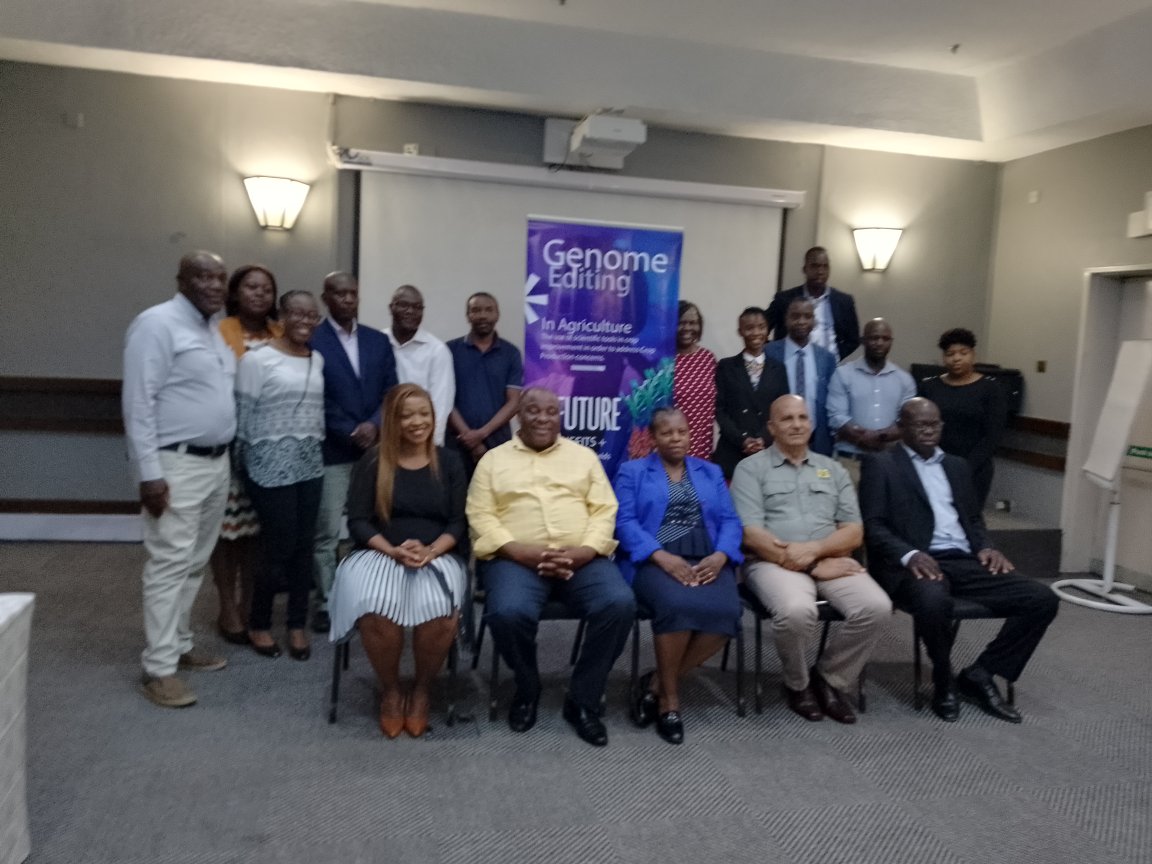|
Getting your Trinity Audio player ready...
|
Product knowledge of genome editing provides transformative technology in the field of biotechnology, unlocking unprecedented possibilities for solving complex challenges in various sectors, ranging from agriculture and environmental conservation and healthcare.
These were remarks by Mrs. Anna Tinarwo, the Chief Director of Devolution and Development Planning in the Office of the President and Cabinet, who was representing Mr. Willard Manungo, the Deputy Chief Secretary in the same office, in her welcome remarks in Hararare today at the African Union Development Agency (AUDA-NEPAD) spearheaded workshop on the development of knowledge products on genome editing.
Zimbabwe is part of the eight-member African countries selected to implement a pilot project of genome editing by AUDA-NEPAD alongside Burkina Faso, Ethiopia, Ghana, Kenya, Malawi, Mozambique, and Nigeria. In Zimbabwe, the lead implementing agency is the Scientific and Industrial and Research Development Centre (SIRDC) and the National Biotechnology Authority (NBA).
“The whole idea is not to convince the end user but make them see the benefits of the product. This is by providing a platform that help stakeholders in decision making by seeing, feeling and touching. Examples would be simple communication through extension; sharing trial results; live demonstrations; field days; shows; workshops; formal trusted and respected publications and media,” Craig added.
The master farmer called on the need to develop relationships and networks between the breeders and stakeholders who are the beneficiaries of the product.
“We are going to see a lot of improvements in the climate change reversal through this Genome Editing programme which we must emulate and cherish. The programme will improve cattle feed through enhanced nutrition and produce crops that will decrease methane emissions from cattle – one problem solved.
“The programme will again point to the potential for enhanced yields, reducing food loss and waste caused by improved quality. Combating climate change will address the issues with adaptability, drought tolerance, maturity days, disease tolerance, productivity, quality, good storability, and longer shelf life amongst other characteristics – once in place less methane. It is also important to mention challenges and opportunities that are coming with the programme,” Craig said.






